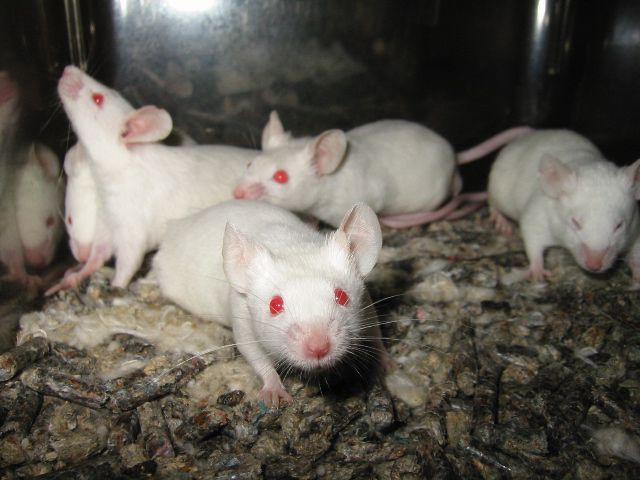-
 Extracellular matrix
Extracellular matrix
-
 Non-essential amino acids
Non-essential amino acids
-
 Supersymmetry
Supersymmetry
-
 Fibrinogen
Fibrinogen
-
 Larynx
Larynx
-
 Cracking
Cracking
-
 SCART Connector
SCART Connector
-
 Addiction
Addiction
-
 Freshwater
Freshwater
-
 LOX
LOX
-
 Drainage
Drainage
-
 Lactate
Lactate
-
 Telepoint base station
Telepoint base station
-
 Basal membrane
Basal membrane
-
 TDG risk
TDG risk
-
 Eczema
Eczema
-
 Cath
Cath
-
 Anti-EGFR
Anti-EGFR
-
 Pelagic life forms
Pelagic life forms
-
 Germ
Germ
-
 Accretion disk
Accretion disk
-
 Nasal polyp
Nasal polyp
-
 Philopatry
Philopatry
-
 Protostome
Protostome
-
 Itai itai disease
Itai itai disease
-
 Inference engine
Inference engine
-
 Datagrid
Datagrid
-
 Strong opioid analgesic
Strong opioid analgesic
-
 M63
M63
-
 Vega
Vega
Laboratory mouse
The laboratoy mouse (Mus musculus) is a model organism studied in biology laboratories.
Classification of the laboratoy mouse
The laboratoy mouse is an eukaryote, a mammal in the Rodentia order and the Muridae family.
Characteristics of the laboratoy mouse
The laboratoy mouse is a mammal measuring 7 to 10 centimetres long, weighing from 20 to 50 grammes. It has a pointed snout and a tail that can be as long as its body. In its natural environment, the mouse is called domestic, because it lives near or in dwellings homes.
It has a linear double-strand DNA genome with 3.4 billion base pairs shared over 20 pairs of chromosomes. It multiplies quickly, since it reaches sexual maturity after about forty days and gestation lasts 18 to 21 days. A female can thus give birth to 18 young per litter (in general, between 5 and 12) every six weeks.
Use of the laboratory mouse
There are many stocks, or lines, of Mus musculus, with different characteristics and different coats. The mouse is the mammal most often used in animal experimentation, especially in medical research.
 Laboratory mice can be albino. © Aaron Logan, Wikimedia, CC by 1.0
Laboratory mice can be albino. © Aaron Logan, Wikimedia, CC by 1.0
Latest
Fill out my online form.



